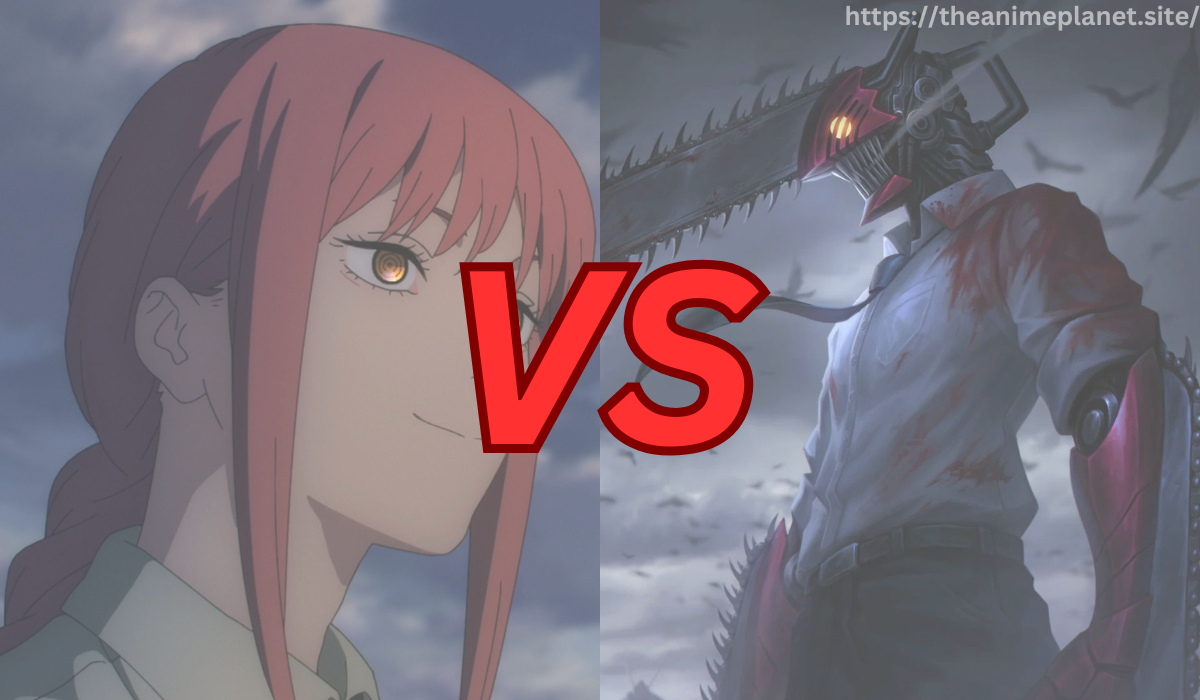The clash between Denji and Makima in Chainsaw Man is not just a battle of strength; it is a profound confrontation that encapsulates the series’ themes of love, betrayal, power, and autonomy. This showdown marks a pivotal moment in Denji’s journey, as he grapples with his feelings for Makima while simultaneously fighting for his life and freedom. In this detailed analysis, we will explore the intricacies of their confrontation, the emotional stakes involved, and the broader implications of this ultimate showdown.
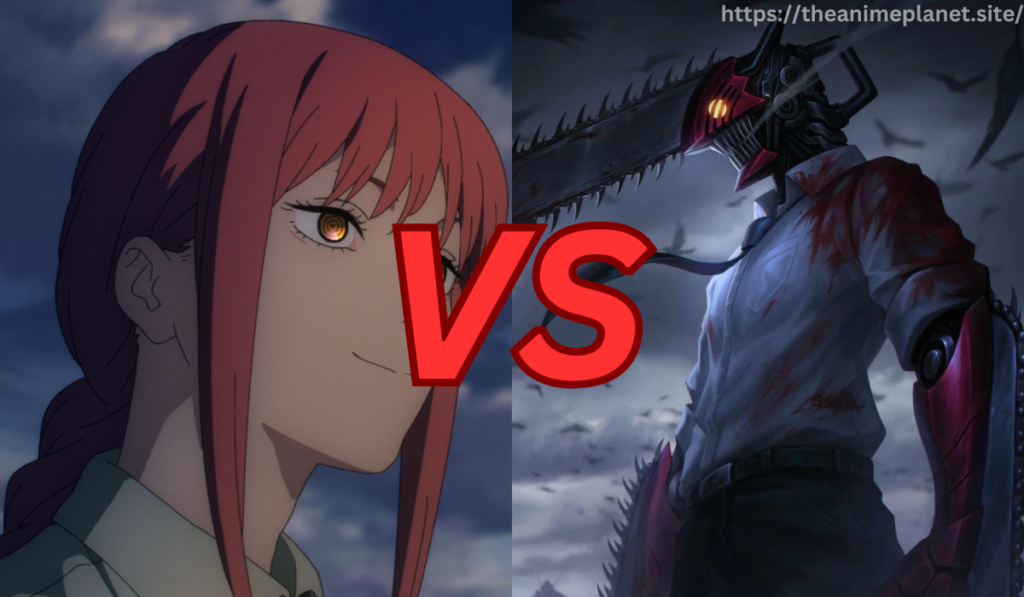
Setting the Stage
The setting for this climactic battle is a graveyard, a location rich with symbolism that resonates throughout Chainsaw Man. Graveyards are places where life meets death, where memories linger, and where the past cannot be easily escaped.
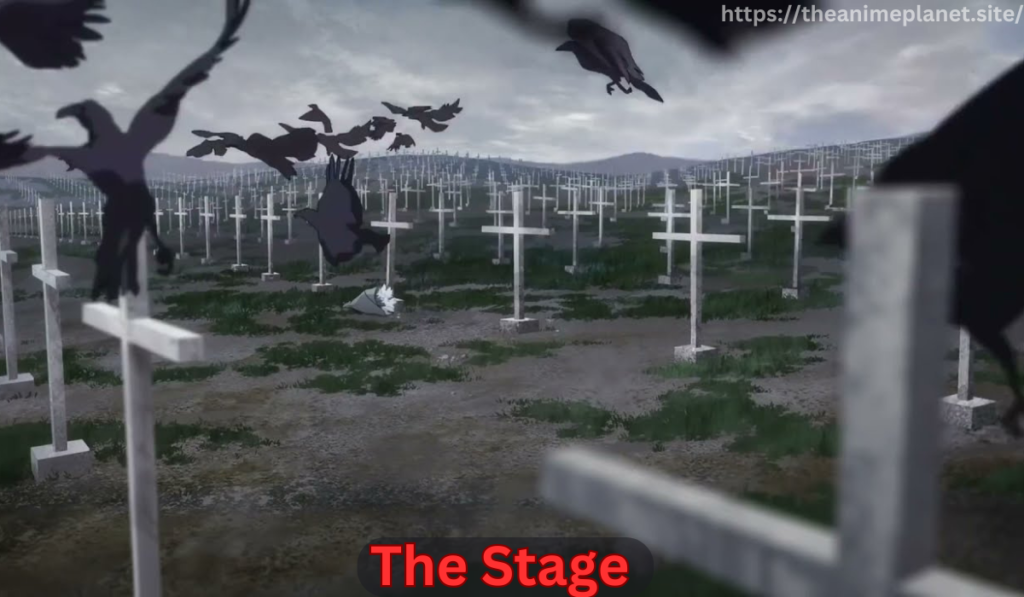
This backdrop serves as a poignant reminder of the characters’ struggles with mortality and the consequences of their choices.Denji, having endured immense suffering at the hands of Makima, prepares for a confrontation that is as much about personal redemption as it is about survival. Throughout the series, Denji has been portrayed as a character driven by basic desires—food, comfort, and companionship. However, his relationship with Makima complicates these desires. She represents both his deepest longing for connection and his greatest source of pain. As he stands in the graveyard, he must confront not only her physical form but also the emotional turmoil she embodies.
The Build-Up to Battle
Before diving into the battle itself, it’s essential to understand the complex dynamics between Denji and Makima leading up to this moment. From their first encounter, Makima has been a figure of authority and allure for Denji. She offers him a taste of what it means to be valued and loved—albeit through manipulation and control. Throughout Chainsaw Man, she has used her powers to orchestrate events that keep Denji close while simultaneously treating him as a pawn in her grander scheme.
The Manipulative Nature of Makima
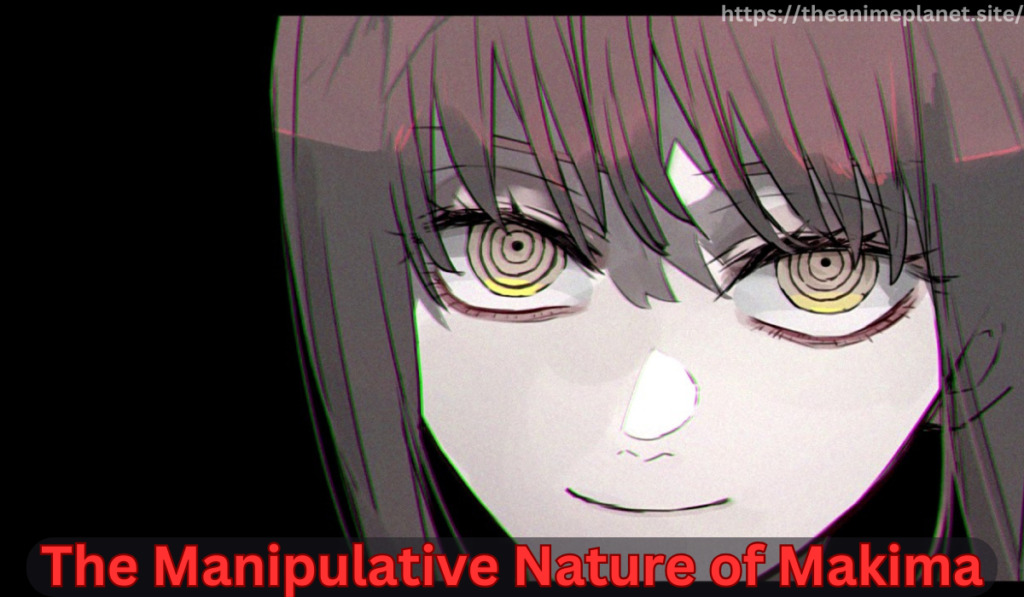
Makima’s character is defined by her ability to manipulate those around her. As the Control Devil, she possesses powers that allow her to dominate others’ wills. Her relationship with Denji is particularly insidious; she exploits his vulnerabilities and desires to bend him to her will.
For much of the series, Denji believes he is acting out of free will when, in reality, he is often being guided by Makima’s unseen hand.This manipulation culminates in several key moments throughout the story. For instance, when she promises Denji a life filled with pleasure and fulfillment if he complies with her demands, he is drawn deeper into her web. Her promises are tantalizing yet ultimately hollow; they serve only to further entrap him in her schemes.
The Emotional Stakes
As Denji grapples with his feelings for Makima, he finds himself torn between love and hatred. His desire for connection makes him vulnerable to her manipulations. This emotional conflict intensifies as he witnesses her ruthlessness toward others—friends and foes alike—forcing him to confront the reality of who she truly is.Denji’s internal struggle becomes increasingly evident as he prepares for their final confrontation. He knows that defeating Makima means confronting not only her physical form but also the emotional ties that bind them together. This duality adds depth to their battle; it’s not merely a fight for survival but also a fight for Denji’s autonomy and identity.
The Battle Begins
The showdown begins with Denji facing off against Makima in the graveyard surrounded by her puppet devils—minions that serve her will without question. As they engage in combat, it quickly becomes apparent that this fight will test both their physical abilities and their psychological resilience.
Denji’s Initial Assault
Initially overwhelmed by Makima’s minions, Denji fights valiantly but struggles against their relentless attacks. He employs his chainsaw powers creatively but soon realizes that brute force alone will not be enough to defeat Makima. She stands at a distance, observing him with an unsettling calmness that only heightens his frustration.Denji’s determination shines through despite the odds stacked against him. He recalls moments from his past—his struggles with poverty, loneliness, and betrayal—that fuel his resolve to fight back against someone who has manipulated him so thoroughly. This recollection serves as both motivation and reminder; he cannot allow himself to be controlled any longer.
The Turning Point: Strategy Over Strength
As the battle progresses, Denji realizes that he must adopt a more strategic approach if he hopes to defeat Makima. He recalls how she has often underestimated him due to her confidence in her control over others. This realization sparks an idea: what if he could use her overconfidence against her?Denji devises a plan involving a fake Chainsaw Devil created from a piece of Pochita—a clever ruse intended to distract Makima long enough for him to get close enough to attack directly. This moment showcases Denji’s growth as a character; he moves beyond simply relying on brute strength and begins to think critically about how best to outmaneuver his opponent.
The Fake Chainsaw Devil
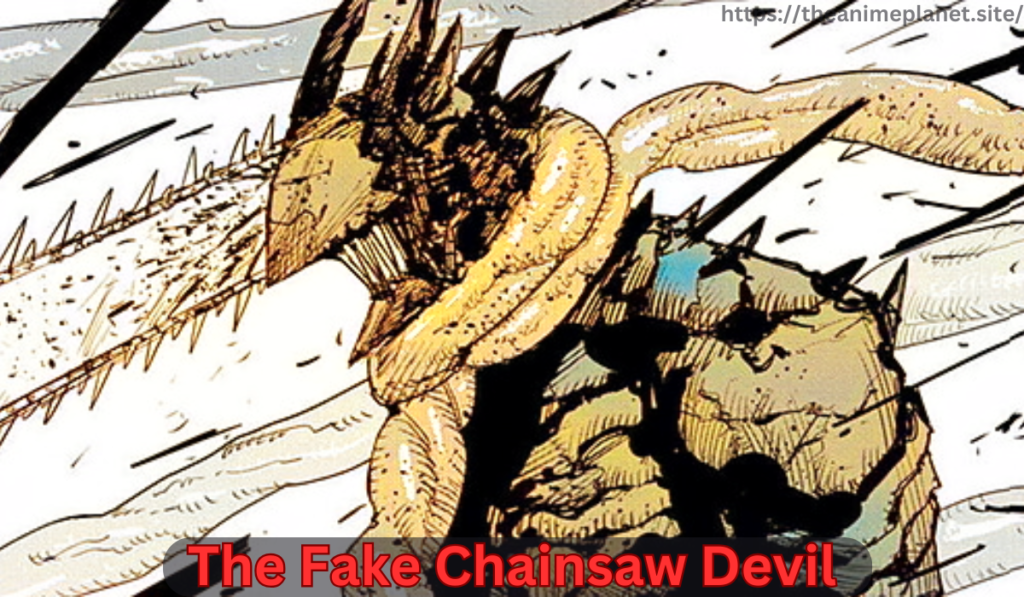
The introduction of the fake Chainsaw Devil marks a significant turning point in the battle. As Denji activates this ruse, it captures Makima’s attention entirely. She approaches it with curiosity and disdain—her confidence blinding her to the true danger lurking nearby.This tactic exemplifies one of Chainsaw Man‘s central themes: intelligence can be just as powerful as brute force in overcoming adversity. While Denji may not possess Makima’s supernatural abilities or extensive experience as a devil hunter, his resourcefulness allows him to turn the tide of battle in his favor.
The Climax: A Battle of Wills
As Denji engages with Makima directly after distracting her with the fake devil, the fight escalates into an intense clash filled with raw emotion and visceral violence. The choreography of their battle is expertly crafted—a dance between predator and prey where both characters showcase their unique abilities.
Physical Combat
Denji unleashes his chainsaw powers with renewed vigor as he charges at Makima. Each swing of his chainsaws represents not just an attack but also an assertion of his newfound autonomy—a rejection of everything she has imposed upon him throughout their relationship.Makima responds with grace and agility; she dodges his attacks effortlessly while countering with her own devastating blows. Her control over others allows her to summon additional devils from nearby graves—an army meant to overwhelm Denji once more.However, instead of succumbing to despair at being outnumbered again, Denji channels his determination into each strike. He fights not only for survival but also for revenge against someone who has caused him immeasurable pain.
Emotional Turmoil
Amidst this chaotic physicality lies an undercurrent of emotional turmoil that defines this battle’s significance. As they fight, flashbacks reveal moments from their shared history—the promises made by Makima juxtaposed against betrayals that have left scars on Denji’s heart.In one poignant moment during combat, Denji recalls how Makima once promised him freedom from suffering if he would only submit to her will completely—a promise now tainted by betrayal and manipulation. This memory fuels his rage but also complicates his feelings toward her; despite everything she has done wrong, there remains an undeniable bond between them.
The Final Assault
In what feels like both an act of desperation and determination combined into one powerful moment, Denji launches himself at Makima with everything he has left—both physically and emotionally invested in this final assault.As he strikes down upon her once more using all available chainsaws at once—the culmination of all previous battles fought together—the weight behind each blow carries years’ worth of pain transformed into raw power aimed directly at breaking free from chains binding him down forevermore.
The Aftermath: A Complex Victory
Denji’s victory over Makima comes at a steep cost—it symbolizes liberation from oppression but also reflects deep emotional scars left behind by their tumultuous relationship.
Cannibalizing Love
One particularly shocking act occurs when Denji cannibalizes parts of Makima after defeating her—a grotesque yet deeply symbolic gesture representing both love lost amidst violence while simultaneously reclaiming agency over himself once again.This act serves multiple purposes: it prevents her resurrection due to unique terms associated with contracts made earlier while simultaneously illustrating how intertwined love can become when mixed alongside betrayal—a twisted reflection on what true connection means within such dark circumstances.By consuming part of what once held power over him (Makima), Denji seeks closure—not just regarding victory but also concerning unresolved feelings lingering beneath surface-level animosity towards someone who had manipulated every aspect surrounding them until now.
Emotional Resolution
While victorious externally against an enemy who sought nothing less than total domination over him emotionally too—Denji finds himself grappling internally still even after achieving physical triumphs; questions arise regarding whether true freedom exists without addressing lingering attachments formed through shared experiences—even those marred by pain inflicted intentionally or unintentionally alike throughout their time together leading up until now!In essence: although liberated from direct control exerted previously via fear tactics employed regularly by maki-ma herself—the emotional remnants remain hauntingly present within den-gi’s psyche long after final blows exchanged during climactic battles fought fiercely until end!
Broader Implications: Themes Explored
The confrontation between Denji and Makima transcends mere physicality; it delves into broader themes central not only within Chainsaw Man but across various narratives exploring similar motifs surrounding power dynamics inherent relationships formed under duress or manipulation tactics employed regularly throughout life experiences faced daily!
Power Dynamics
At its core lies exploration surrounding power dynamics prevalent within human relationships—how individuals can wield influence over others through manipulation while simultaneously becoming victims themselves caught within cycles perpetuated endlessly unless broken free from shackles binding them down forevermore!Makima represents an archetype seen frequently throughout literature—a figure embodying control exerted over those deemed weaker or more vulnerable due largely due circumstances beyond their control (such as poverty poverty stricken backgrounds faced daily).
Her ability manipulate those around her showcases dangers associated unchecked ambition when left unchecked leads inevitably towards destruction ultimately resulting tragic outcomes experienced firsthand firsthand! Conversely: den-gi embodies resilience found amidst adversity faced daily despite overwhelming odds stacked against him constantly reminding readers importance never giving up hope even when darkness threatens consume entire lives entirely!
Love vs. Control
Another significant theme explored during this showdown revolves around love versus control—the fine line separating genuine affection expressed towards another person versus possessive tendencies exhibited regularly by individuals seeking dominate relationships formed under duress often resulting tragic outcomes experienced firsthand firsthand!Den-gi’s conflicting emotions towards maki-ma highlight complexities inherent navigating relationships built upon trust yet marred betrayal experienced repeatedly throughout time spent together leading up until now! Despite everything done wrong still remains undeniable bond forged through shared experiences faced together ultimately culminating climactic battles fought fiercely until end!
FAQ
1. Who are Denji and Makima in Chainsaw Man?
Denji is the main protagonist of Chainsaw Man, a young man who becomes a devil hunter after merging with his pet devil, Pochita, gaining the ability to transform parts of his body into chainsaws. Makima is a high-ranking Public Safety Devil Hunter and the Control Devil, known for her manipulative nature and desire to control others.
2. What is the significance of their battle?
The battle between Denji and Makima represents a culmination of their complex relationship, showcasing themes of love, betrayal, autonomy, and the struggle against manipulation. It serves as a critical turning point for Denji’s character development.
3. What are Makima’s powers?
Makima possesses several formidable abilities as the Control Devil, including mind control over other devils and humans, regeneration from fatal injuries, and the ability to summon devils to do her bidding. Her powers make her one of the most dangerous characters in the series.
4. How does Denji prepare for the fight against Makima?
Denji prepares by devising a strategy that involves creating a fake Chainsaw Devil using a piece of Pochita to distract Makima. This clever tactic allows him to exploit her overconfidence and get close enough to attack.
5. What role does emotional conflict play in their battle?
The emotional conflict is central to their confrontation. Denji grapples with feelings of love and hatred towards Makima, which complicates his motivations during the fight. This internal struggle adds depth to the physical battle, making it more than just a fight for survival.
6. How does Denji’s character evolve through this battle?
Throughout the battle, Denji evolves from a pawn manipulated by Makima into an autonomous individual who fights back against her control. He learns to strategize and assert his own will, marking significant growth in his character arc.
7. What is the significance of the graveyard setting?
The graveyard setting symbolizes themes of death, rebirth, and unresolved pasts. It reflects both characters’ struggles with mortality and the consequences of their choices throughout the series.
8. What happens when Denji defeats Makima?
When Denji defeats Makima, he cannibalizes her as an act that symbolizes both love and revenge. This act prevents her from resurrecting due to her contracts with other devils and signifies Denji’s reclaiming of agency over his life.
9. How does this battle reflect broader themes in Chainsaw Man?
The battle encapsulates broader themes such as power dynamics in relationships, the complexity of love intertwined with control, and the journey toward personal autonomy amidst manipulation.
10. What are some key moments during their fight?
Key moments include Denji’s clever use of the fake Chainsaw Devil, his emotional reflections during combat, and the climactic moment when he cannibalizes Makima after defeating her—each highlighting different aspects of their relationship.
11. How does Denji feel about Makima throughout the fight?
Denji experiences conflicting emotions toward Makima during the fight—he feels anger and betrayal for her manipulations but also retains feelings of affection due to their shared history, making it difficult for him to fully detach emotionally.
12. What impact does this battle have on Denji’s future?
The battle serves as a pivotal moment for Denji’s character development, allowing him to break free from Makima’s control and assert his own identity moving forward in the series.
13. Are there any lessons learned from this confrontation?
Yes, this confrontation teaches lessons about recognizing toxic relationships, understanding personal autonomy, and the importance of confronting one’s feelings—both positive and negative—in order to grow as an individual.
14. How does this showdown compare to other battles in manga?
This showdown is notable for its emotional depth and psychological complexity compared to many other battles in manga that often focus solely on physical prowess or action sequences. It emphasizes character development alongside combat.
Conclusion
In conclusion: den-gi’s battle against maki-ma serves multifaceted purpose extending far beyond mere physical confrontation—it represents journey towards autonomy reclaiming agency lost amidst manipulative tactics employed regularly throughout lives lived under duress!While victorious externally against formidable foe—den-gi grapples internally still even after achieving triumphs reflecting deeper complexities inherent navigating relationships built upon trust yet marred betrayal experienced repeatedly throughout time spent together leading up until now!
Ultimately: this showdown encapsulates essence chainsaw man exploring themes surrounding love versus control power dynamics inherent human relationships reminding readers importance never giving up hope even when darkness threatens consume entire lives entirely!As den-gi emerges victorious from ashes left behind remains poignant reminder journey towards autonomy often fraught challenges faced daily navigating complexities inherent navigating relationships built upon trust yet marred betrayal experienced repeatedly throughout time spent together leading up until now!Through this ultimate showdown between den-gi maki-ma—readers are left contemplating true cost power desire amidst world filled devils reminding us all importance finding balance between love freedom reclaiming agency lost amidst manipulative tactics employed regularly throughout lives lived under duress!

